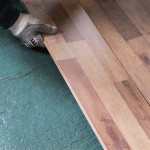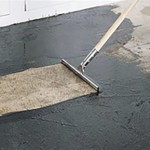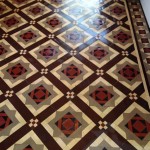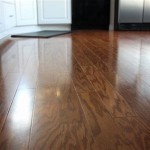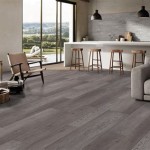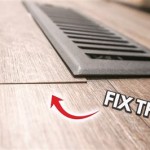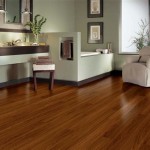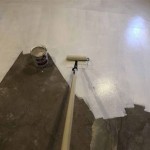The Essential Aspects of Cork Flooring: Benefits and Drawbacks
Cork flooring, a natural and eco-friendly flooring option, has gained increasing popularity in recent years. Derived from the bark of the cork oak tree, cork flooring offers a unique combination of comfort, durability, and sustainability. However, it also has its drawbacks to consider before making an informed decision.
Benefits of Cork Flooring
1. Comfort and Sound Absorption: Cork flooring is renowned for its exceptional comfort underfoot due to its natural resilience and cushioning properties. It effectively absorbs impact and reduces noise transmission, creating a tranquil and comfortable living space.
2. Durability and Longevity: Contrary to its perceived fragility, cork flooring is surprisingly durable and can withstand heavy foot traffic. Its elasticity allows it to bounce back from dents and scratches, ensuring longevity and maintaining its aesthetic appeal over time.
3. Sustainability and Eco-Friendliness: Cork is a renewable resource that is harvested without harming the cork oak tree. Cork flooring is naturally hypoallergenic, anti-microbial, and resistant to pests, making it an ideal choice for environmentally conscious individuals.
4. Thermal Insulation: Cork flooring acts as a natural thermal insulator, effectively regulating indoor temperatures. Its cellular structure traps air, creating a barrier that reduces heat loss in winter and keeps spaces cool in summer.
5. Unique Aesthetic Appeal: Cork flooring boasts a distinctive and aesthetically pleasing appearance. Its natural grain patterns and warm hues add a touch of organic beauty and character to any room.
Drawbacks of Cork Flooring
1. Higher Cost: Cork flooring tends to be more expensive than other flooring options such as laminate or vinyl. Its production process and the sustainable sourcing of cork contribute to its higher cost.
2. Water Resistance: While cork is naturally water-resistant, it is not waterproof. Spills and moisture should be cleaned up promptly to prevent damage. Regular sealing is recommended to enhance its water-resistant properties.
3. Lack of Resilience: Cork flooring is not as resilient as some other flooring materials, such as ceramic tile or hardwood. Heavy furniture or sharp objects can cause indentations or damage if not properly protected.
4. Fading: Cork flooring can fade over time, particularly when exposed to direct sunlight. UV protection is essential to preserve its color and prevent discoloration.
5. Limited Color Options: Cork flooring is typically available in a limited range of natural hues, primarily browns and reds. This may not align with all interior design preferences or color schemes.
Conclusion
Cork flooring offers an array of benefits, including comfort, durability, sustainability, thermal insulation, and aesthetic appeal. However, it also has some drawbacks, such as its higher cost, limited water resistance, and potential for fading. Weighing these advantages and disadvantages carefully will help homeowners make an informed decision that aligns with their needs, preferences, and budget.

Advantages Disadvantages Of Cork Flooring Floorings

Cork Flooring Pros And Cons Is It The Right Choice For You

Pros And Cons Of Cork Flooring Is It Right For You Bob Vila

The Pros And Cons Of Cork Flooring Floorings

Cork Flooring Pros And Cons Icork Floor

Cork Flooring Worth The Investment For Your Home

5 Benefits Of Cork Flooring

Pros Cons Of Cork Wood Flooring Napolis

Cork Flooring Pros And Cons America S Floor Source

Cork Flooring Guide Specifics Pros Cons Fantastic Handyman Au
See Also
